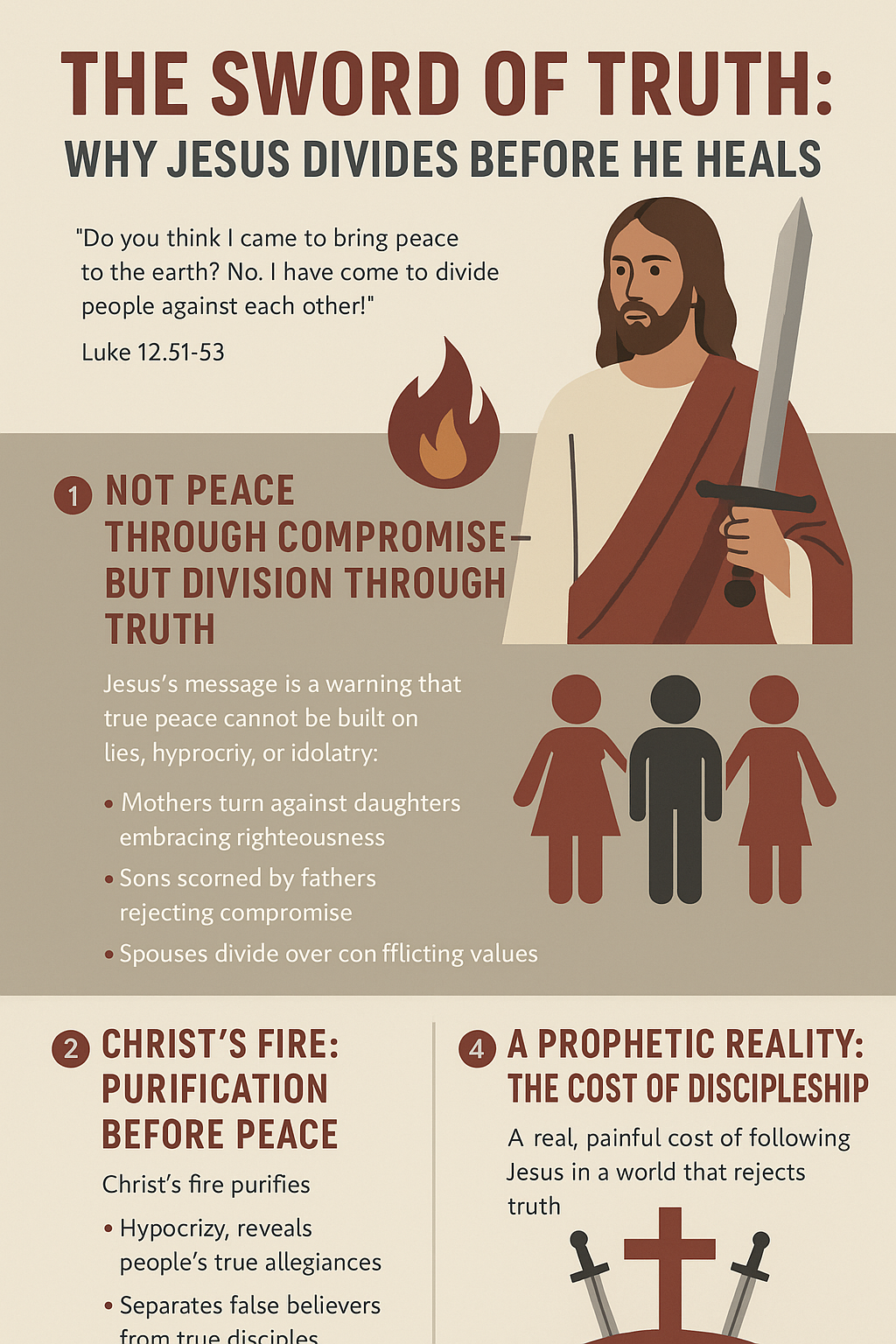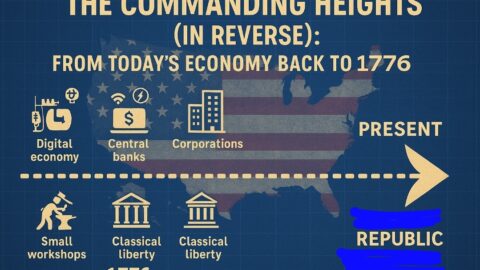Understanding Luke 12:51–53 and the Cost of Discipleship
“Do you think I came to bring peace to the earth? No, I have come to divide people against each other!”
— Jesus (Luke 12:51)
At first glance, this statement from Jesus seems jarring—even contradictory to His role as the “Prince of Peace.” Why would Christ, who preached love, compassion, and unity, claim to bring division, especially among families?
To understand this passage is to grasp one of the most profound spiritual truths of the gospel: truth divides before it heals, and allegiance to Christ often disrupts worldly peace.
Not Peace Through Compromise—But Division Through Truth
Jesus is not rejecting peace altogether. Rather, He is warning that true peace cannot be built on lies, hypocrisy, or idolatry—even within the most sacred human institution: the family.
When Jesus says He brings division, He is describing the inevitable result of confronting people with truth in a fallen world. His message forces a decision:
- Do we serve God or man?
- Do we cling to truth or comfort?
- Do we follow Christ or culture?
“From now on families will be split apart, three in favor of me, and two against.”
This is the natural reaction of a broken world encountering a perfect standard. Many reject it. Some embrace it. The result is friction—often within one’s own household.
When Family Becomes an Idol
Jesus clarifies in Matthew 10:37:
“Anyone who loves father or mother more than me is not worthy of me.”
This is not a command to hate family—it is a challenge to our ultimate loyalty. In many cultures and households, family identity is supreme. But Jesus warns that even the love of family can become an idol—something we place above God.
That’s why the gospel often causes:
- Mothers to turn against daughters who embrace righteousness.
- Sons to be scorned by fathers when they reject compromise or cultural conformity.
- Spouses to divide over conflicting values.
Jesus doesn’t cause this out of cruelty—but truth disrupts false peace.
Christ’s Fire: Purification Before Peace
Just before this divisive statement, Jesus says:
“I have come to set the world on fire, and I wish it were already burning!”
— Luke 12:49
This “fire” is not destruction for its own sake—it is purification. It is the fire that:
- Burns away hypocrisy
- Reveals people’s true allegiances
- Separates false believers from true disciples
The division Jesus brings is surgical, like a sword cutting away what’s diseased so healing can begin.
This mirrors Hebrews 4:12:
“The word of God is living and active, sharper than any double-edged sword… it judges the thoughts and attitudes of the heart.”
The sword divides before it unites.
A Prophetic Reality: The Cost of Discipleship
This passage was not just metaphor—it became literal in the lives of early Christians:
- Jewish converts were excommunicated from their families.
- Roman citizens were imprisoned or martyred for rejecting Caesar-worship.
- In many parts of the modern world, converts to Christianity still face family abandonment, persecution, or death.
The division Jesus spoke of is not theoretical. It is the real, painful cost of following Him in a world that rejects truth.
Higher Moral Development: Stage 6 Commitment
This aligns with Lawrence Kohlberg’s Stage 6 of moral development:
Living by self-chosen ethical principles that are universal and consistent, even when it causes social rejection or legal punishment.
Jesus calls His followers to live by higher principles—truth, justice, love, holiness—not merely family loyalty, cultural tradition, or fear of conflict.
That’s why people at lower moral stages (e.g. blind obedience, law-and-order conformity, or approval-seeking) often reject those who follow Christ fully.
Division Is the Path to Redemption
Although Jesus acknowledges this division, He also promises healing for those who walk through it:
“Blessed are you when people insult you, persecute you and falsely say all kinds of evil against you because of me.” — Matthew 5:11
The gospel doesn’t preserve false peace—it creates real peace by destroying the lies that separate us from God.
Final Reflection: Why This Matters Today
In today’s world:
- Many families are split over faith, values, politics, or morality.
- Believers are often ridiculed for taking an uncompromising stance on truth.
- Spiritual division is increasing—not because Christ failed, but because His truth is still exposing darkness.
Jesus came not to preserve shallow harmony, but to ignite a movement that calls people out of deception—even if it costs everything.
If you’ve been rejected for following Him, remember:
“They will hate you because they hated me first.” (John 15:18)
You’re in good company.
Takeaway: True Peace Requires the Sword
Christ divides not because He is cruel, but because He is truth incarnate. And truth, by its very nature, confronts, divides, and purifies.
There can be no resurrection without a cross. No peace without a sword. No unity without first facing division.
— Paraphrase of the Gospel paradox







